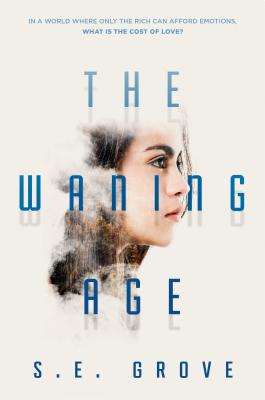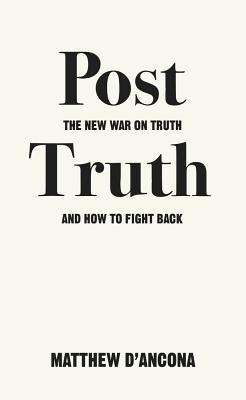 One of the books The Year 2019 drew our attention to during last week’s interview with her was S.E. Grove’s The Waning Age. Given the highly exceptional imaginative qualities of her earlier middle grade fantasy work, the Mapmaker’s Trilogy, Grove’s foray into YA seemed well worth investigating further.
One of the books The Year 2019 drew our attention to during last week’s interview with her was S.E. Grove’s The Waning Age. Given the highly exceptional imaginative qualities of her earlier middle grade fantasy work, the Mapmaker’s Trilogy, Grove’s foray into YA seemed well worth investigating further.
The Waning Age is set in a dystopian San Francisco in which the social fabric has been reshaped by waning, the permanent loss of an ability to feel emotion which is experienced by all children between 10 and 12. Class issues predominate in a world where pharmaceutical companies produce high-end emotional cocktails such as love, desire and excitement which only the wealthy can afford, while everyone else scrambles to purchase cut-rate emotions like panic or anxiety at the drugstore chains.
The book follows 17-year-old Natalia Peña whose younger brother Calvino’s failure to wane has attracted the interest of drug company scientists, who kidnap him. Natalia’s quest to rescue her brother is filled with some wonderfully taut action and suspense, but it is the book’s fascinating philosophical exploration of what it is to be human that I found particularly intriguing. Happily the author was available to answer a few questions for us.
Kenny: What was it like to write a first-person narrative of a character who does not experience emotions? For example, did you get in character by purging yourself of emotions for a month or anything like that?
 Sylvia: Repression is a long art in my family, so it came naturally to me! No, just kidding – sort of. I do think most of us, maybe all of us, have experienced not feeling the thing we know we *ought* to be feeling. Something outrageous happens, but we don’t feel angry. We suffer a loss, but just feel numb. Instead of feeling happy at something we’re part of, we feel detached. To me, these sensations are common enough to provoke scrutiny. Psychologists have names for these reactions, of course, but I wanted to dive all the way in and see what it would be like for these experiences we have fleetingly to be more total. The central idea of the book came to me as I reflected (over many years) on the absence of empathy in certain situations – some of it ordinary and routine, some of it colossal and tragic. The more I started to push into the moments when I had felt detachment, or numbness, the more it came to seem like a condition that could actually become global, and widely shared.
Sylvia: Repression is a long art in my family, so it came naturally to me! No, just kidding – sort of. I do think most of us, maybe all of us, have experienced not feeling the thing we know we *ought* to be feeling. Something outrageous happens, but we don’t feel angry. We suffer a loss, but just feel numb. Instead of feeling happy at something we’re part of, we feel detached. To me, these sensations are common enough to provoke scrutiny. Psychologists have names for these reactions, of course, but I wanted to dive all the way in and see what it would be like for these experiences we have fleetingly to be more total. The central idea of the book came to me as I reflected (over many years) on the absence of empathy in certain situations – some of it ordinary and routine, some of it colossal and tragic. The more I started to push into the moments when I had felt detachment, or numbness, the more it came to seem like a condition that could actually become global, and widely shared.
Kenny: Do you anticipate that the removal of empathy will be a narrative construct that resonates strongly with teen readers, who may be quick to experience this future as a difference of degree not of nature?
Sylvia: I hope this will resonate with teen readers, and I’m intrigued that you think they may see this as a difference of degree. There’s the common wisdom that adolescence is a time of turbulent and even exaggerated emotions – I certainly experienced that sometimes. But what I remember most vividly from these years was the terrible pressure not to show what I was feeling, or better yet not to feel at all. Conceal. Conceal. Show nothing. Feel nothing. Being able to not feel something was like armor, and showing a feeling left you exposed. It was OK to show a false emotion, because that kept you protected, but genuine emotion was a danger to be avoided. I also remember feeling that the emotions and motivations of adults in my world often seemed perplexing to the point of incomprehensibility.
While this book was going through two years of editing, I had the strange experience of watching many of its central problems (so it seemed to me) pop up in the news over and over again. It felt like I’d plagiarized the present or something. If teen readers are at all like me, maybe they will see these resonances, too. I felt it watching the calculated (seemingly emotionless, sometimes) responses by politicians to school shootings; I felt it when parents and children were being matter-of-factly separated at the border; and since the book has so much to do with class, I’ve felt it acutely in these last two years every time a spotlight shines on aspects of our own increasingly stratified society.
Kenny: The nuance between impulses and feelings was fascinating to me. It seemed that people’s outward behavior, sense of ethics, and interpersonal responsibility had not changed substantially, but rather the forces that brought about the resultant behavior were being caused by other, less emotive means, by training and impulse channeling. Still, how do emotionally resonant concepts such as ethnicity and nationality persist in a world governed by the loss of emotion? Is it class differences, aggression, and laissez faire capitalism that make the lack of empathy toxic? What are the behavioral drivers here?
 Sylvia: These are deep waters! And fascinating to me, so thanks for delving into this. I think there are actually many cultural constructs, even in our world, that have been largely voided of emotion but that we still hang on to and use in a reflexive, even automated way. These might be habits, customs, or constructions (like gender and race). In our world they haven’t been entirely emptied of emotion, but they might be on their way there. Since the holidays aren’t too far behind us, think about gift-giving as an example. The giving of gifts can be something solemn, joyous, and deeply emotional. I made a little stuffed animal for my son this year, and in doing so I was not just thinking about him as I cut and stuffed and sewed, I was also remembering how my mother used to make hand-sewn toys for me, and how she would stay up late on the 24th to finish, and now here I was, using the very same sewing machine she used! The making and giving of this was deeply meaningful. BUT I also bought a box of Legos on the internet. And I don’t think any of us has to look far to find an example of gift-giving that felt completely mechanical: a transaction that is routinely undertaken at this time of year and must be undertaken again. My idea with some of these conventions in this book is to show how they persist, either out of habit or because people rationally think they serve some kind of social good (the giving of gifts supposedly strengthens bonds, right?), and so people go on performing them.
Sylvia: These are deep waters! And fascinating to me, so thanks for delving into this. I think there are actually many cultural constructs, even in our world, that have been largely voided of emotion but that we still hang on to and use in a reflexive, even automated way. These might be habits, customs, or constructions (like gender and race). In our world they haven’t been entirely emptied of emotion, but they might be on their way there. Since the holidays aren’t too far behind us, think about gift-giving as an example. The giving of gifts can be something solemn, joyous, and deeply emotional. I made a little stuffed animal for my son this year, and in doing so I was not just thinking about him as I cut and stuffed and sewed, I was also remembering how my mother used to make hand-sewn toys for me, and how she would stay up late on the 24th to finish, and now here I was, using the very same sewing machine she used! The making and giving of this was deeply meaningful. BUT I also bought a box of Legos on the internet. And I don’t think any of us has to look far to find an example of gift-giving that felt completely mechanical: a transaction that is routinely undertaken at this time of year and must be undertaken again. My idea with some of these conventions in this book is to show how they persist, either out of habit or because people rationally think they serve some kind of social good (the giving of gifts supposedly strengthens bonds, right?), and so people go on performing them. Kenny: The idea of buying cheap emotion at Rite Aid was brilliant. There was a kind of goodness to people who held back from chasing chemically induced emotions that seemed to indicate that moral decisions are a personal architectural force in and of themselves. In being resigned to who they were as a choice, they had transcended the intrinsic evil of a culture built around capitalizing on waning.
Kenny: The idea of buying cheap emotion at Rite Aid was brilliant. There was a kind of goodness to people who held back from chasing chemically induced emotions that seemed to indicate that moral decisions are a personal architectural force in and of themselves. In being resigned to who they were as a choice, they had transcended the intrinsic evil of a culture built around capitalizing on waning.Sylvia: I love this way of understanding it, which I didn’t quite put into words – the holding back and the goodness that comes in that resignation. I agree. I think it’s because the forces at work here, in this world, are replaceable with other forces (similar, perhaps, in our own world) that work in the same way. I’m not moralizing about abstinence, or abstention in general, but I do think that there is a monumental give and take between us and the forces that benefit from consumption. Perhaps I can best comment here with a question: in this waning society, people think that they need to buy emotions in order to fit in; in our society, what do people think they need to buy in order to fit in?
Kenny: Is Natalia’s love for her brother Calvino based on a latent ability to feel that would be possible for anyone in this world or is there something special about Natalia that gives her access to this emotional renaissance?
 Sylvia: I am going to cheat here and say that it is up to the reader to decide. Because I genuinely do want readers to decide. You’ve hit here on what I think, I hope, will be one of the central questions readers will come away with: do I have it in me to break the strength of cultural norms? Even if they are hardwired into me? I was reading recently a book about truth-telling (Matthew D’Ancona’s Post-Truth), and in one portion of the book he discussed scientific studies that demonstrate why – at the neurological level – it’s difficult for people to change their minds. The brain develops pathways, and when we confront new information that would force us to change those pathways, the brain resists; it wants to follow the old pathways. (I’m oversimplifying a bit.) Changing your mind is actually hard on the brain. Doesn’t that seem accurate? So our dilemmas are not too different from Natalia’s dilemma: can you think differently? Can you be someone other than the person you used to be? Can you change your mind?
Sylvia: I am going to cheat here and say that it is up to the reader to decide. Because I genuinely do want readers to decide. You’ve hit here on what I think, I hope, will be one of the central questions readers will come away with: do I have it in me to break the strength of cultural norms? Even if they are hardwired into me? I was reading recently a book about truth-telling (Matthew D’Ancona’s Post-Truth), and in one portion of the book he discussed scientific studies that demonstrate why – at the neurological level – it’s difficult for people to change their minds. The brain develops pathways, and when we confront new information that would force us to change those pathways, the brain resists; it wants to follow the old pathways. (I’m oversimplifying a bit.) Changing your mind is actually hard on the brain. Doesn’t that seem accurate? So our dilemmas are not too different from Natalia’s dilemma: can you think differently? Can you be someone other than the person you used to be? Can you change your mind?Kenny: Thanks so much, Sylvia.
Sylvia: Thanks for these fabulous questions, Kenny!

